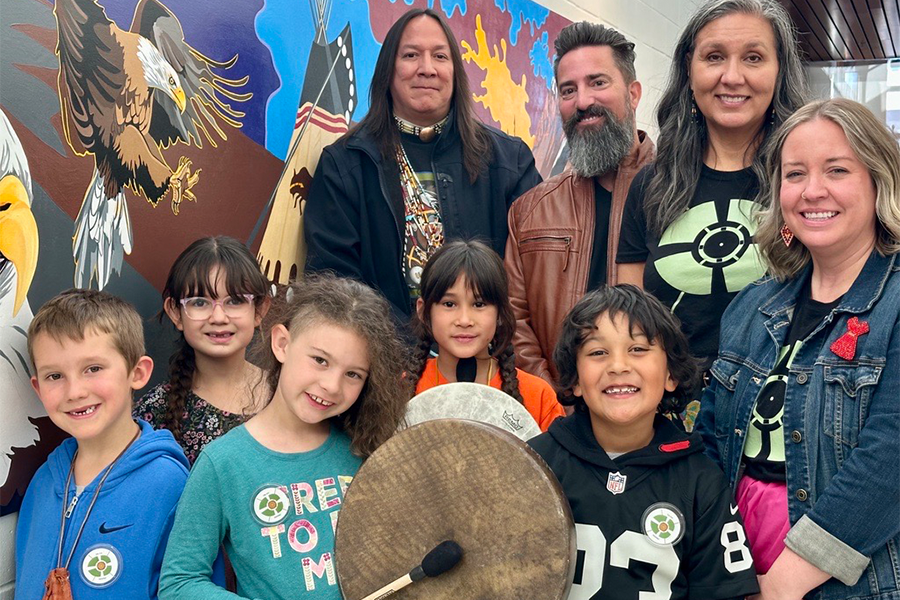Oct. 16, 2024
The Niitsitapi Learning Centre has recently unveiled a stunning work of art by renowned Blackfoot artist Kalum Teke Dan.
Inspired by the lands of Treaty 7, the mural captures the beauty of animals, landscapes, and cultural elements that hold deep significance for the area. Painted over the course of three weeks using acrylics, it has quickly become a source of pride for the school and its community.
The mural stands as a vibrant representation of Blackfoot traditions often reflected in painted tipis. While the space would not accommodate a painted tipi, the mural brings these stories to life for students and the community in a new and accessible form.
Dan, who previously was gifted the right, through ceremony, to paint the tipi canvas for the Niitsitapi Learning Centre, expressed his gratitude for being involved in the project.
“It’s an honour to be part of something like this for such an amazing school and community,” he said. “I try to portray pride.”
“A lot of our pride was taken away through the residential school system. This is my way of giving back to my people, and I want everyone to be proud.”
Accompanying the unveiling was a video featuring Kainai Elder Saa’kokoto, who had originally gifted the school's tipi through ceremony.

Niitsitapi Learning Centre mural unveiling.
The artwork, which showcases mountains (miistak), water (oahkists), buffalo (iinii), eagles (piita), and more, serves not only as a beautiful installation but also as an educational tool. It gives students, teachers, families, and the wider community the chance to learn about the tipi's symbolic meanings year-round.
In Blackfoot, the tipi is known as a moyis, meaning lodge or home.
Principal Tracy Rand noted that students often pause to admire the mural, finding a reflection of themselves in its imagery, especially the intentionally non-gendered Indigenous child depicted.
“I recall a student saying while watching Kalum paint the mural, ‘I see iinii. I see piita. Seeing iinii and piita makes me proud of who I am,” Rand said.
“This mural has greatly impacted our school and community. It fosters pride in our students and encourages all students to appreciate these cultural symbols.”
The Truth and Reconciliation Commission Call to Action 14 emphasizes the importance of preserving Indigenous languages, calling for an Aboriginal Languages Act to protect these languages for future generations.
“We commit to strengthening our knowledge of Indigenous languages and supporting opportunities for regular practice with students that respects the traditional territory we are on and the diverse Indigenous population who attend our school,” Rand said.
